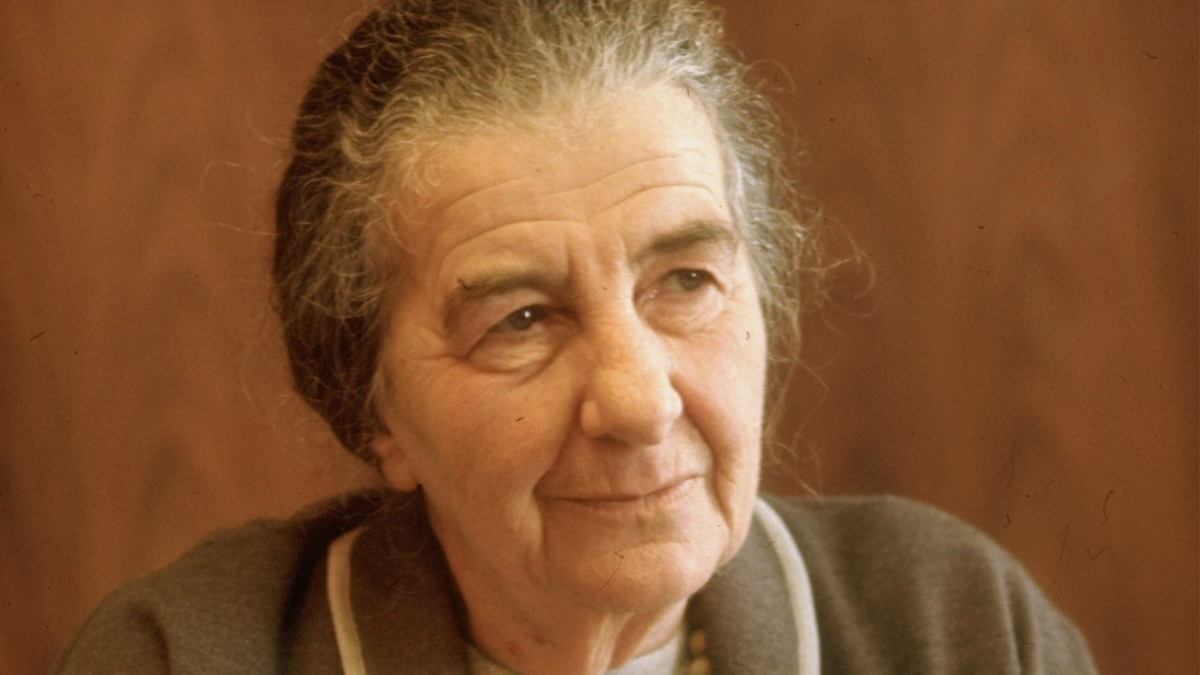

Golda Meir: Israel’s History Rhymes
Attacks on Jews throughout the ages ring eerily true to modern-day headlines, but Christians know how the story ends.
11/2/23
John Stonestreet Timothy D Padgett

Mark Twain famously said that “History doesn’t repeat itself, but it does often rhyme.” The new film, Golda, starring Helen Mirren, provides evidence of that maxim.
A surprise Arab attack is carried out on the nation of Israel in the first week of October. An embattled Israeli Prime Minister fights to secure American support. There are whispers of Russian involvement and atrocities in Ukraine. Golda is not a film about 2023, but it does recall the remarkably similar story of 1973.
In fact, the history of Israel and the wider story of the millennia-long persecution of Jews can feel somewhat like a broken record. No matter the era, no matter the region, no matter the culture, Jacob’s children find themselves in the crosshairs of their neighbors’ hatred.
In the 5th-century BC, the royal advisor Haman whined to his king: There is a certain people scattered abroad and dispersed among the peoples in all the provinces of your kingdom. Their laws are different from those of every other people, and they do not keep the king’s laws, so that it is not to the king’s profit to tolerate them.
Haman was, of course, speaking of the Jewish people.
Jewish historian Josephus described the tensions that simmered between Jews and Greeks in Egypt since the 4th century. Conflict erupted in his day into riots that, before the slaughter stopped, left some 50,000 Jews dead. In a remark that could be taken from today’s headlines, the historian declared,
Some were caught in the open field, others forced into their houses, which were plundered and then set on fire. The Romans showed no mercy to the infants, had no regard for the aged, and went on in the slaughter of persons of every age.
Over the next few hundred years, this antisemitism was, with some notable exceptions, sadly baptized by an emerging Christian culture. Some of this can be attributed to an accommodation to the cultural norms, some to seeking revenge for earlier Jewish persecutions of Christians, and some to significant theological issues that continue to affect Jewish-Christian relations even today.
In a tragic replaying of the persecution inflicted on the Early Church by Roman pagans, Christians scapegoated Jews for bad harvests, plagues, and political misfortune. Across Europe, especially Russian-controlled areas, pogroms were unleashed against victims with nowhere to go, at least until the rise of America and Israel.
Attacks against the Jews only increased with the evolving of a more secularized, modern age. Ancient prejudices took on modern forms, fed by conspiracy theories held across various segments of society. Jews were thought to be both in absolute control of world events and bent on world destruction. The horrifying capstone of antisemitism in the modern era was given the name the “Final Solution” by the Nazis.
Sadly, the story of Jew hatred continues today, in the conspiracy junkie who sees the Rothschilds behind every event and in the equally abhorrent Critical Theory claims about Israeli occupation and oppression. From these two ends of the Western political spectrum, the Jews have once again been cast into a villainous role they’ve never deserved.
Despite being an emotionally heavy movie, Golda ends with an optimistic note. Through the peace that ended the war between Israel and Egypt, steps began which, 50 years later, have led to an increasing number of treaties between Arabs and Israelis. Though we are rightly outraged by the vile comments of some in the West in support of the atrocities of Hamas, nearly every Western government has stood up for Israel in this situation. And many Muslim states have either stayed quiet or even voiced support.
Will this current crisis lead to greater stability as the crisis told about in the film? We don’t know. What we do know is that this history did not begin yesterday, nor will it be fixed tomorrow. But, even when history does rhyme, it doesn’t necessarily have to repeat. We live in God’s world. He promises to “make all things new.” That will be how the story ends.
This Breakpoint was co-authored by Dr. Timothy Padgett. If you’re a fan of Breakpoint, leave a review on your favorite podcast app. For more resources to live like a Christian in this cultural moment, go to breakpoint.org.
Have a Follow-up Question?
Up
Next

Related Content

© Copyright 2020, All Rights Reserved.













